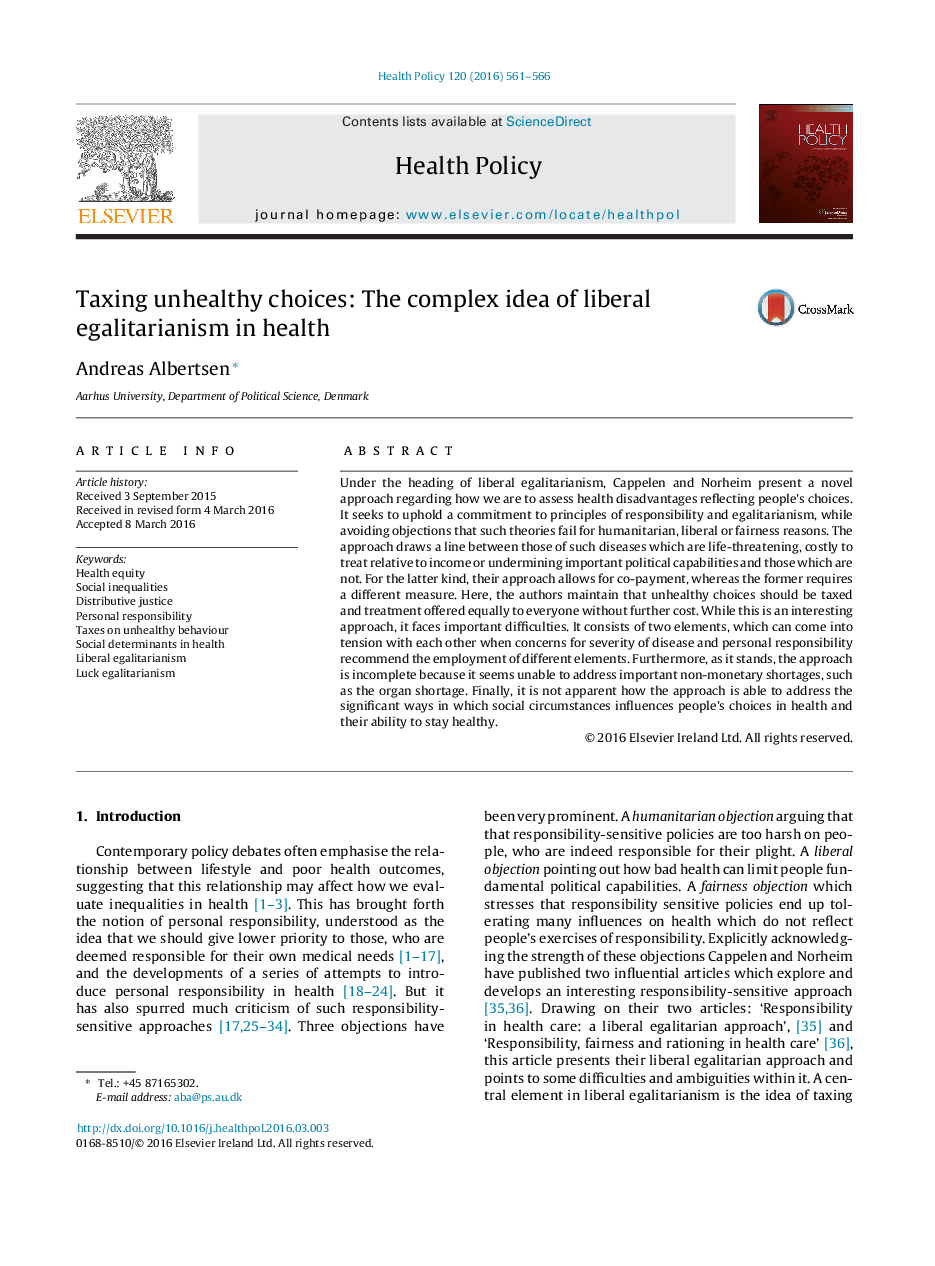| Article ID | Journal | Published Year | Pages | File Type |
|---|---|---|---|---|
| 6238975 | Health Policy | 2016 | 6 Pages |
â¢Taxing risky choices leaves a tension between personal responsibility and severity of disease.â¢Taxing unhealthy choices may disproportionately affect the poor.â¢Liberal egalitarianism is silent regarding non-monetary shortages.â¢A focus on healthcare distribution neglects broader societal health concerns.â¢Liberal egalitarianism fails in its responsibility-sensitive ambitions.
Under the heading of liberal egalitarianism, Cappelen and Norheim present a novel approach regarding how we are to assess health disadvantages reflecting people's choices. It seeks to uphold a commitment to principles of responsibility and egalitarianism, while avoiding objections that such theories fail for humanitarian, liberal or fairness reasons. The approach draws a line between those of such diseases which are life-threatening, costly to treat relative to income or undermining important political capabilities and those which are not. For the latter kind, their approach allows for co-payment, whereas the former requires a different measure. Here, the authors maintain that unhealthy choices should be taxed and treatment offered equally to everyone without further cost. While this is an interesting approach, it faces important difficulties. It consists of two elements, which can come into tension with each other when concerns for severity of disease and personal responsibility recommend the employment of different elements. Furthermore, as it stands, the approach is incomplete because it seems unable to address important non-monetary shortages, such as the organ shortage. Finally, it is not apparent how the approach is able to address the significant ways in which social circumstances influences people's choices in health and their ability to stay healthy.
